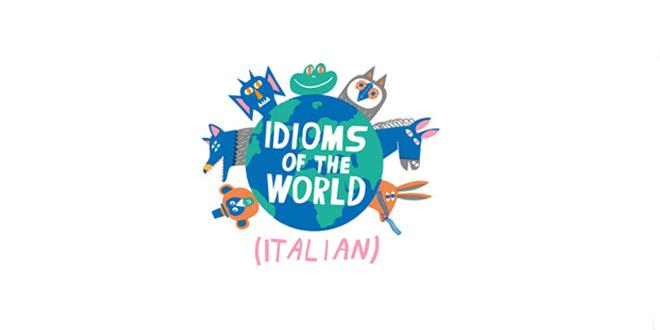Currently Empty: $0.00

Table of Contents
Italy, a country known for its rich cultural heritage, breathtaking landscapes, and delectable cuisine, is also home to a fascinating language. Italian, with its melodic tones and expressive gestures, has a unique charm that captivates language enthusiasts from around the world. One aspect that adds to the beauty of the Italian language is its collection of idioms. These idiomatic expressions not only enhance your language skills but also provide insights into the country’s culture and way of life.
In this blog, we will explore eight great Italian idioms that will not only broaden your understanding of the language but also help you delve deeper into the heart and soul of Italy. So, let’s embark on this linguistic journey together and discover the wonders of Italian idioms!
Table of Contents
- Idiom 1: “Avere le mani di pastafrolla”
- Idiom 2: “Essere come il prezzemolo”
- Idiom 3: “Essere una cosa da lupi”
- Idiom 4: “Avere le braccine corte”
- Idiom 5: “Avere le farfalle nello stomaco”
- Idiom 6: “Mettere la pulce nell’orecchio”
- Idiom 7: “Essere un fannullone”
- Idiom 8: “Essere acqua fresca”
Idiom 1: “Avere le mani di pastafrolla”
Meaning: To have clumsy hands
Literal Translation: To have pastry dough hands
Italy is renowned for its culinary prowess, and this idiom reflects the importance of dexterity in Italian cuisine. If someone has “le mani di pastafrolla,” it means they lack coordination and finesse when it comes to handling delicate tasks.
Idiom 2: “Essere come il prezzemolo”
Meaning: To be everywhere
Literal Translation: To be like parsley
In Italian cuisine, parsley is often used as a garnish and is sprinkled on various dishes. Similarly, when someone is “come il prezzemolo,” they are constantly present or appear in every situation, just like the ubiquitous herb.
Idiom 3: “Essere una cosa da lupi”
Meaning: To be extremely difficult or challenging
Literal Translation: To be something for wolves
In Italian culture, wolves are associated with strength and cunning. When something is described as “una cosa da lupi,” it means that it is exceptionally tough or demanding, requiring the tenacity and resilience of a wolf.
Idiom 4: “Avere le braccine corte”
Meaning: To be stingy
Literal Translation: To have short arms
This idiom humorously portrays someone who is unwilling to reach into their pockets or extend their arms to share or give something. If a person is described as having “le braccine corte,” it suggests they are not generous or inclined to offer assistance.
Idiom 5: “Avere le farfalle nello stomaco”
Meaning: To have butterflies in the stomach
Literal Translation: To have butterflies in the stomach
This delightful idiom perfectly captures the feeling of nervousness or excitement before a significant event or encounter. When someone has “le farfalle nello stomaco,” they experience fluttering sensations similar to butterflies flying in their stomach.
Idiom 6: “Mettere la pulce nell’orecchio”
Meaning: To sow doubt or suspicion
Literal Translation: To put a flea in the ear
This idiom vividly describes the act of causing doubt or suspicion in someone’s mind. Just like a flea buzzing around in one’s ear can be irritating and distracting, “mettere la pulce nell’orecchio” involves planting seeds of uncertainty or skepticism.
Idiom 7: “Essere un fannullone”
Meaning: To be lazy or idle
Literal Translation: To be a good-for-nothing
“Essere un fannullone” is an idiom used to describe individuals who are lazy or have a habit of avoiding work. This expression conveys the notion of being unproductive or idle, suggesting a lack of motivation or willingness to put in effort.
Idiom 8: “Essere acqua fresca”
Meaning: To be naive or gullible
Literal Translation: To be fresh water
Water, often associated with purity and freshness, becomes a metaphor in this idiom. When someone is described as “essere acqua fresca,” it implies they are innocent, naive, or easily fooled.
We hope these Italian idioms have piqued your interest in the language and culture of Italy. Incorporating idiomatic expressions into your language learning journey adds depth and authenticity to your conversations. So, why not embrace the charm of Italian idioms and sprinkle a little linguistic flair into your daily interactions?
Remember, language is more than just words—it’s a gateway to understanding different cultures and building connections with people around the world. Italian idioms offer a glimpse into the Italian way of life, allowing you to truly appreciate the beauty and intricacies of this enchanting language.
Keep exploring, keep learning, and immerse yourself in the captivating world of Italian idioms!
Resources:
For further exploration of the Italian language, idioms, and culture, we recommend checking out the following resources:
- Italy Magazine – Italy Magazine is an online publication that offers a wealth of articles, news, and insights about Italian culture, travel, and language. Dive into their vast collection of content to deepen your understanding of Italy and its idiomatic expressions.
- Transparent Language – Transparent Language provides language-learning resources and tools for various languages, including Italian. Their Italian program offers comprehensive lessons, vocabulary lists, and interactive activities to help you master the language, including idiomatic expressions.
FAQs:
Q: Are idioms commonly used in everyday Italian conversation?
A: Yes, idioms are an integral part of Italian communication. Using idiomatic expressions adds color and flavor to conversations and helps convey specific meanings or emotions.
Q: How can I incorporate Italian idioms into my language learning?
A: Start by familiarizing yourself with common Italian idioms and their meanings. Practice using them in relevant contexts, such as conversations or writing exercises. Gradually integrate them into your language repertoire to sound more natural and fluent.
Q: Are there regional variations in Italian idioms?
A: Yes, just like any language, Italian idioms can vary from region to region. Some idiomatic expressions may be more prevalent in certain areas of Italy, reflecting local customs, dialects, or cultural nuances.

